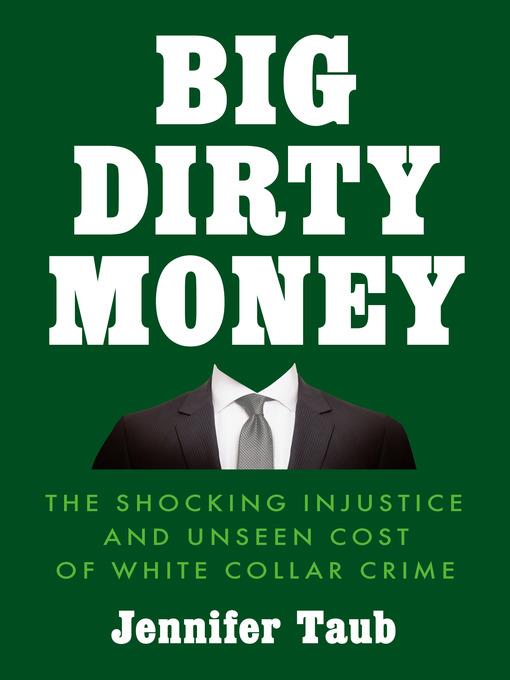
Big Dirty Money
The Shocking Injustice and Unseen Cost of White Collar Crime
کتاب های مرتبط
- اطلاعات
- نقد و بررسی
- دیدگاه کاربران
نقد و بررسی

July 15, 2020
A scathing indictment of white-collar crime and its unpunished practitioners. So-called street crime--robbery, burglary, etc.--costs American society about $16 billion per year, according to FBI statistics. Conversely, "white collar crime in America, such as fraud and embezzlement, costs victims an estimated $300 billion to $800 billion per year." So observes Vermont Law School professor and legal activist Taub, who adds that, as in other aspects of life, the holders of the big ticket pretty much get away with it every time out. Even if they don't, they get a pass, as when in February 2020 Donald Trump pardoned various perpetrators of "bribery, investment fraud, public corruption, computer hacking, an extortion cover-up, money laundering, conspiracy to defraud the federal government, obstruction of justice, mail fraud, wire fraud." Taub adds, "No white collar crime left behind." The laxity with which white-collar crime is treated speaks to social inequality, and the author looks deeply into cases such as that of the opioid-peddling Sackler family, who were given ample time to hide their assets offshore when caught violating federal drug laws. Even though three top officials of their Purdue Pharma pleaded guilty, none served prison time. "They are as bad as the drug pusher on the street corner or the kingpins behind the cartel," Taub notes with appropriately righteous indignation. For their part, those caught insider trading face an essentially toothless Securities and Exchange Commission. And so on. In this steely-eyed examination of these brazen criminals, Taub holds that this lack of effective punishment merely encourages the wealthy to prey on the rest of society. Though it would be impossible and even undesirable to prosecute every one of them, "we do need to make an example of those who are the worst offenders"--especially when a "lying, cheating, megalomaniac American president" is available to issue pardons like so many doses of Oxycontin. A significant manifesto for judicial reform that aims at cracking the cabal of big-money grifters at the top.
COPYRIGHT(2020) Kirkus Reviews, ALL RIGHTS RESERVED.

August 10, 2020
Taub, a law professor at Western New England University, examines the adverse impacts of white collar crime on American society in her eye-opening and well-informed debut. Citing FBI statistics, Taub notes that fraud, embezzlement, and other white collar crimes cost victims $300 billion to $800 billion per year, while street-level property crimes total $16 billion annually. She discusses corporate crime waves in U.S. history, examines the laws put in place to combat them, and argues that “white collar crime is on the rise and criminal enforcement has cratered” since the 2008 financial crisis. Taub blames the current state of affairs on lack of prosecutorial muscle, “mutually assured immunity for the upper classes” (Democrat and Republican alike), and greater judicial discretion in sentencing white collar crimes compared to other offenses. Her examples of corporate crimes include a “pay-to-play” bribery scheme involving a portfolio manager for the New York State Common Retirement Fund, Purdue Pharmaceutical’s false claims about the addictiveness of OxyContin, and a 60 Minutes story on the willingness of American lawyers to facilitate foreign money laundering. Taub’s detailed solutions includes a new division within the Justice Department to focus on prosecuting white collar criminals and restoring funding to the IRS. Backed with hard evidence and firm conviction, this is a powerful and persuasive call for reform. Agent: Jill Marr, Sandra Dijkstra Literary.

























دیدگاه کاربران